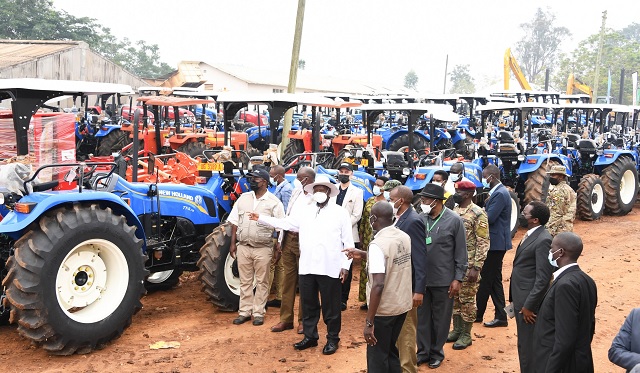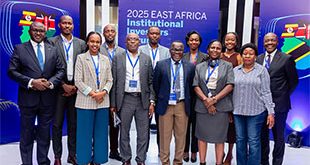
The company has been a cornerstone of the region’s agricultural sector, providing essential machinery and support to farmers
Kampala, Uganda | THE INDEPENDENT | CMC Motors Group, a prominent player in East Africa’s automotive and agricultural machinery market, has announced plans to gradually wind down operations in Uganda, Kenya and Tanzania.
The decision brings to an end the company’s decades-long presence in the region, where it has been a critical provider of mechanization solutions and automotive products.
The company said in a statement issued on Jan.17 that the move is attributed to sustained market challenges, including economic pressures, currency depreciation, and rising operational costs.
CMC Motors said the decision followed a comprehensive review of its business strategy and a determination that current market conditions were no longer conducive to securing a profitable future.
“For over 40 years, CMC Motors has been an essential partner in East Africa’s agricultural sector, delivering quality service, mechanization solutions, and unwavering support to its customers. Unfortunately, current market conditions have made it impossible to secure a profitable future,” the company said.
The group, however, assured stakeholders that it remains committed to supporting its employees during the transition and ensuring compliance with all relevant regulations and agreements.
New transition
The wind-down follows significant restructuring efforts, including a transformation initiative launched in 2023, which ultimately failed to establish a sustainable path forward. CMC Motors exited the passenger car business in 2023 to focus on selling agricultural equipment, including New Holland tractors, but the shift proved insufficient to offset broader market challenges.
During the same period, the company laid off 169 employees as it cleared out its remaining inventory of vehicles under the Ford, Mazda, and Suzuki franchises, which were subsequently transitioned to new dealers.
CMC Motors Group was acquired by Dubai-based Al-Futtaim Auto & Machinery in 2014 for Kshs 7.5 billion (Shs 212.7bn). The acquisition marked the end of a turbulent period for the company, which had faced years of boardroom disputes and allegations of financial misconduct by former directors and senior managers.
Al-Futtaim paid Kshs 13 per share (Shs 368.8) for CMC Motors, valuing the deal at a significant premium. The acquisition price was 68.8 times the company’s reported net profit of Kshs 110 million (Shs 3.12bn) in 2013 and Kshs 1.7 billion (Shs48.2bn) higher than its net assets of Kshs 5.8 billion (Shs164.5bn) at the time, according to Kenya’s Business Daily, a business publication.
The buyout is said to have offered relief to CMC’s shareholders, including prominent investors such as Peter Muthoka, Paul Ndung’u, Joel Kibe, and the late Jeremiah Kiereini, who collectively earned billions from the deal.
However, the closure of CMC Motors’ East African operations highlights the financial strain Al-Futtaim has faced in maintaining its investment. It remains unclear whether Al-Futtaim has identified buyers for CMC’s assets, which include prime land holdings in Nairobi.
Scattered automotive brands
Prior to the acquisition, CMC Motors boasted one of the most diverse portfolios of automotive brands in East Africa, including Jaguar Land Rover, Ford, Volkswagen, and Nissan Diesel (UD). However, boardroom wrangles led to the termination of several distributorship agreements, with many brands moving to competitors such as Inchcape Kenya, Caetano Kenya, and CFAO Mobility Kenya.
CMC Motors has been a cornerstone of East Africa’s agricultural sector, providing essential machinery and support to farmers across the region. Its exit could leave a significant void in the market, where mechanization has been a critical driver of productivity and growth.
CMC Motors Group, owned by CMC Holdings Ltd and part of the Al-Futtaim Group, also owns Cooper Motor Corporation (Uganda) Ltd, Hughes Motors (Tanzania) Ltd, and a 33% stake in Kenya Vehicle Manufacturers Ltd. It is yet to be determined whether these subsidiaries will be affected by the decision to wind down operations in East Africa.
 The Independent Uganda: You get the Truth we Pay the Price
The Independent Uganda: You get the Truth we Pay the Price



